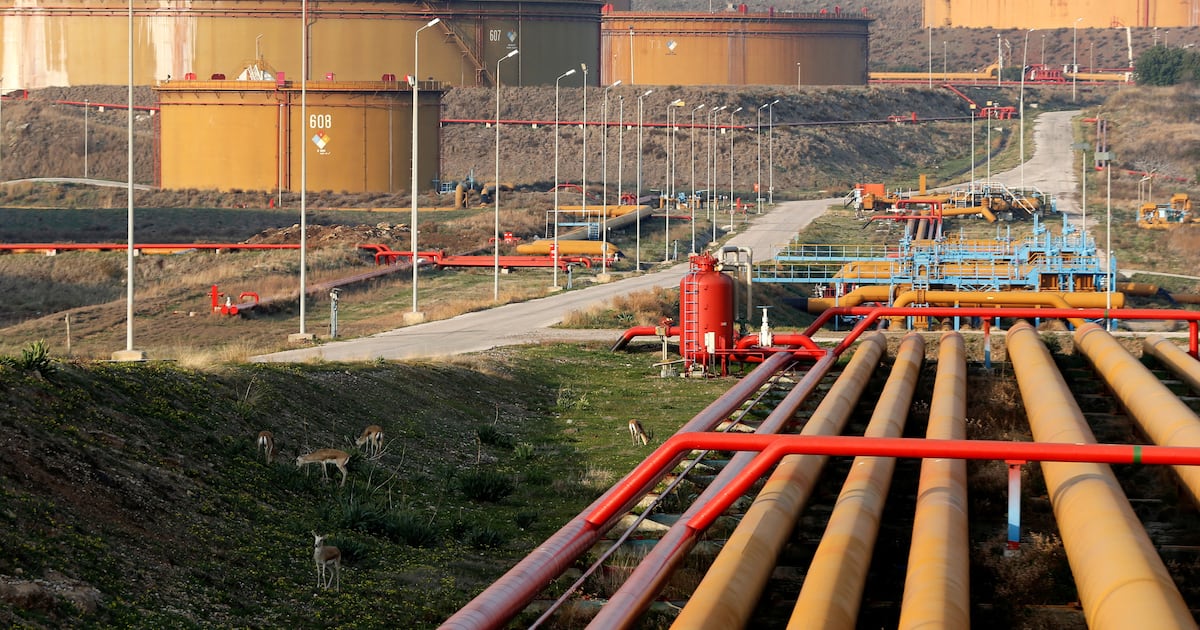Iraq is considering a proposal from Turkey to establish a broader energy agreement that covers oil, gas, petrochemical industries and electricity, Iraq’s Oil Ministry has said.
On Monday, Ankara announced it would not be renewing a decades-old agreement that allowed Baghdad to export its crude oil to the international market through Ceyhan in Turkey.
In place since 1975, the Kirkuk-Ceyhan oil pipeline deal will expire on July 27, 2026, a ruling published in the Turkey’s official gazette said. All protocols or memorandums relating to the deal will also stop.
The Turkish Energy Ministry of Energy sent a letter to Iraq’s Ministry of Oil expressing its desire for a new agreement, the oil ministry said late on Monday.
“Along with it is a draft of a new agreement for co-operation in the energy sector, more comprehensive than the previous agreement,” it cited an unidentified official as saying.
That draft suggests “co-operation in the field of oil, gas, petrochemical industries and electricity, with the aim of expanding the horizons of co-operation between the two countries”.
The Oil Ministry is “in the process of reviewing the draft agreement” before negotiations to “reach a formula that serves the interests of Iraq and Turkey”, the official said.
The Kirkuk-Ceyhan pipeline has been offline since 2023 after an arbitration court ruled that Ankara had breached the agreement when it allowed Iraq’s semi-autonomous Kurdish region to pump crude without Baghdad’s consent. The ruling also stipulated Ankara should pay $1.5 billion in damages for unauthorised Iraqi exports between 2014 and 2018. Turkey is appealing the ruling.
Iraq and Turkey have been working to resume oil flows from the pipeline. Ankara said in late 2023 that the pipeline was ready to receive Iraq’s oil but Baghdad, the Kurdistan Regional Government and independent oil producers were unable to agree on the terms.
The Iraqi Cabinet approved a long-anticipated agreement with Kurdistan that could reset their strained relationship over oil exports and public sector salaries.
Relations between Baghdad and Ankara have improved significantly in recent years with the two neighbouring countries working on expanding co-operation in many fields, including security, economy, trade and investment opportunities.
Top among these plans is a major economic integration project known as the Development Road – a $17-billion project that will connect Iraq’s southern Gulf ports to Turkey. Iraq, Turkey, Qatar and the UAE have signed a preliminary agreement for joint co-operation on the project.
As part of the initiative, a high-speed road and rail link, running from Iraq’s port city of Basra on the Gulf to the Turkish border and later to Europe, will also be extended.
Iraq is the second-largest producer of oil in the Opec group after Saudi Arabia, with an output of about 3.9 million bpd, according to the latest Opec data.
